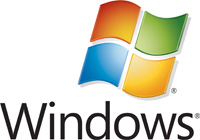NSW missed Linux opportunity

commentary Once again, the New South Wales State Government has left Linux out in the cold after being knee-deep in speculation the open source platform would make in-roads into its desktop environment.

(Credit: Microsoft)
Flanked by heavyweights from Microsoft and Chinese PC manufacturer Lenovo, this morning the state's Premier Nathan Rees announced the Department of Education and Training would roll out some 200,000 laptops to students and teachers using Windows XP and Office.
I'm sure you can imagine the lack of shock in the ZDNet.com.au's bunker when this news came to light. The phrase "Nobody ever got fired for buying IBM" danced through this writer's mind.
Champagne celebrations will also be being held in Adobe's headquarters tonight, due to the software vendor's coup of inking a secondary deal with NSW which will see the laptops ship with the latest Photoshop Elements and bits and pieces of Creative Suite 4. Pays to get 'em young, obviously; they won't leave the fold later on.
The only problem with these cosy arrangements is that they represent a lack of gumption on the part of the NSW Government to at last capitalise on the open source opportunity it has been making eyes at for years.
In December 2006, DET information services director Tim Anderson claimed the department was taking Linux seriously. "The possibility of running Linux-based desktop platforms is real for us," he says in this video. "We have to consider [open source] very seriously," he continued, "because it is clearly an industry trend. We need to have genuine competition in the marketplace for desktops ... a lot of innovative educational solutions are coming out of the open source area."
That hasn't been the only example of the state considering the Linux option. Also in 2006, NSW issued a massive request for tender for desktops, laptops and small servers, noting in the desktop section that the ability to supply Linux-based systems was a highly desirable characteristic. That move had followed the appointment of a panel of open-source software suppliers back in 2005.
Fast forward to 2009.
After two years of frantic development, Linux (particularly Ubuntu) has achieved a strong presence in the now-mainstream netbook market courtesy of Asus' courageous early decision to focus on the open source platform, education-friendly derivatives like Edubuntu are well-developed, and few cross-platform or driver issues still dog Linus Torvalds' baby on standard hardware.
When your wife's friend's 60-year-old mother tells you at a Christmas party at a lovely Indian diner in Newtown that she loves her Xandros-based Linux PC and wants to buy more for her children, you know Linux has arrived.
With this in mind, and the cost consideration that clearly played a big part in DET's negotiations with vendors (DET CIO Stephen Wilson this morning said he was pleased with Microsoft's "innovative and flexible approach to software licensing and support"), it's hard to see why Linux wasn't given more serious consideration in the department's plans.
Then too, the department has not outlined how the laptops will be secured. I can't imagine the Atom-based Lenovo machines will have many spare CPU cycles or much spare RAM after loading up a security suite like Norton Antivirus in combination with Windows XP and chunks of Adobe CS4. You simply wouldn't face the same problem under Linux.
But my biggest beef with the state for choosing Windows XP actually doesn't relate to any of these issues.
Instead, I wonder how, given a plausible reason to, NSW could possibly refuse the chance to turn hundreds of thousands of students into armchair software developers by giving them Linux laptops armed with software development tools and all the room and encouragement to tinker and build great things that open source software offers.
NSW could have been the next Silicon Valley. Instead, the biggest legacy DET has landed itself is the task of sitting back down with Microsoft in several years to negotiate the upgrade to Windows 7.